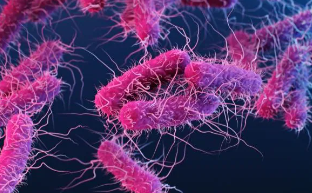E. Coli Outbreak: Causes, Symptoms, and Prevention
The United States is currently facing an E. coli outbreak linked to contaminated food. This situation marks the risks associated with E. coli, a common bacterium found in various environments. While most strains are harmless and aid digestion, some can cause severe illness.
About E. coli
E. coli, or Escherichia coli, is a bacterium that resides in the intestines of humans and animals. Most strains are harmless. However, a few strains produce Shiga toxin, leading to serious health issues. These strains can cause infections even with small amounts ingested.
Types of Infections
E. coli infections can manifest in several ways:
Gastrointestinal Symptoms: Watery diarrhoea, stomach pain, and cramps are common. Severe cases can lead to bloody diarrhoea due to damage to the intestinal lining.
Urinary Tract Infections (UTIs): E. coli can migrate from the gut to the urinary tract, causing pelvic pain and a burning sensation during urination.
Sepsis: If E. coli enters the bloodstream, it can trigger a severe inflammatory response, potentially leading to sepsis if not treated promptly.
Signs and Symptoms
Symptoms vary based on the type of infection:
Gastrointestinal Infection: Runny stomach, abdominal cramps, loss of appetite, and low fever.
UTI: Frequent urge to urinate, cloudy or foul-smelling urine, and pelvic pain.
Symptoms can appear within hours to ten days after exposure.
Transmission Routes
- coli can be contracted through various means:
- 1. Contaminated Food: Eating undercooked or raw foods, especially unwashed salads.
- Contaminated Water: Natural water sources and swimming pools can be infected by faecal matter from animals and people.
- 3. Surface Contact: Sharing objects or surfaces with an infected person can spread the bacteria.
- Poor Hygiene: Inadequate bathroom hygiene can lead to E. coli entering the urinary tract. Proper handwashing and bathroom cleanliness are essential.
Risk Factors
While anyone can contract E. coli, certain groups are more vulnerable:
Children and Elderly: Young children and adults over 60 are at higher risk.
Immunocompromised Individuals: Those with weakened immune systems or on immuno-suppressant medications are more susceptible.
Stomach Acid Levels: Low stomach acid can increase vulnerability. Medications that reduce stomach acid may also heighten risk.
Treatment Options
E. coli infections are treatable, primarily with antibiotics. However, some strains have developed resistance due to antibiotic overuse. A sensitivity test can determine the most effective antibiotics for treatment. Caution is advised regarding antibiotic use for other health conditions to prevent resistance.
Prevention Tips
To reduce the risk of E. coli infection:
- Cook food thoroughly and wash vegetables properly.
- Drink clean, treated water.
- Maintain proper hygiene, especially after using the bathroom.
- Regularly disinfect surfaces that may come into contact with fecal matter.
Staying informed and practicing good hygiene can reduce the risk of E. coli infections.
Month: Current Affairs - October, 2024
Category: Science & Technology Current Affairs








